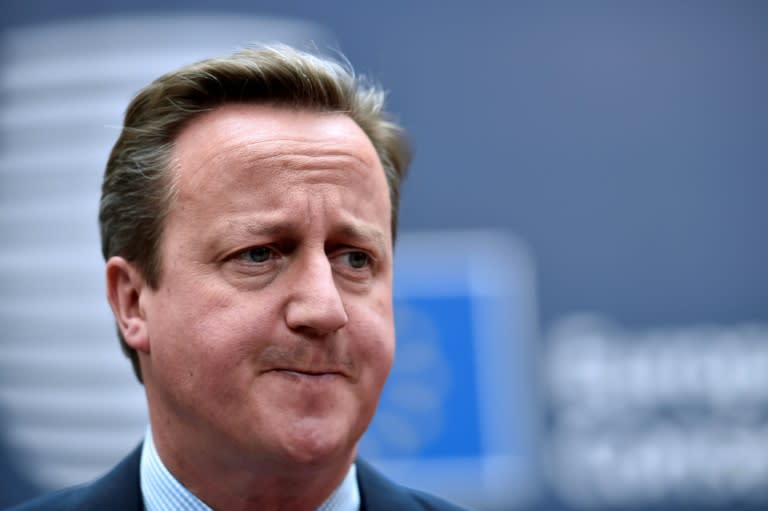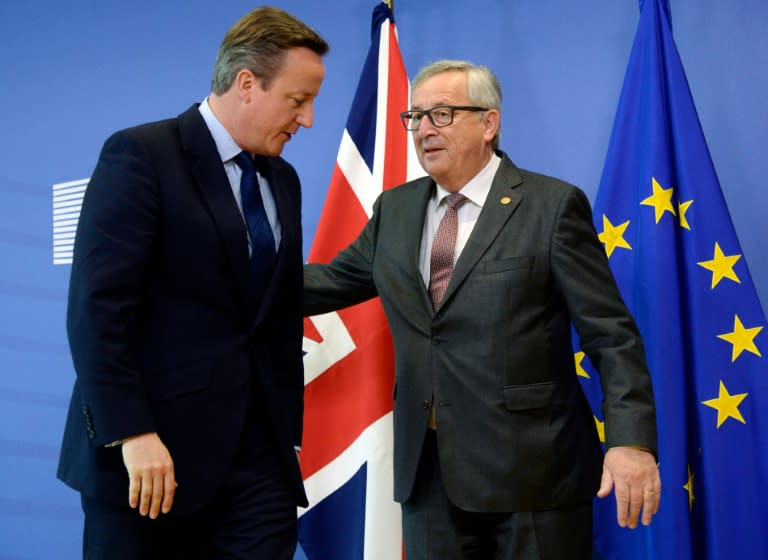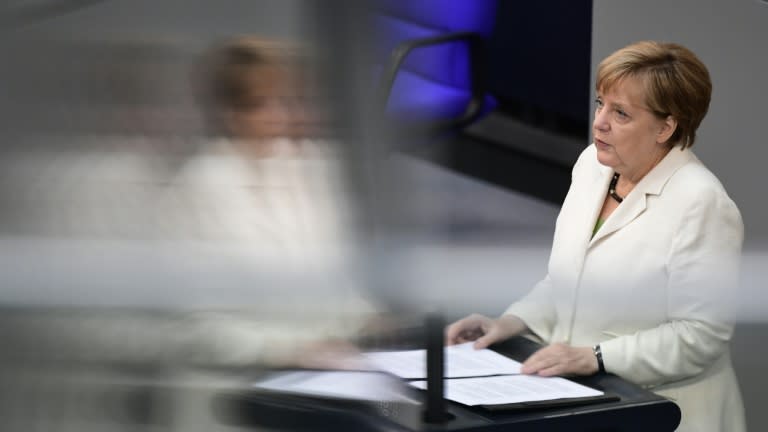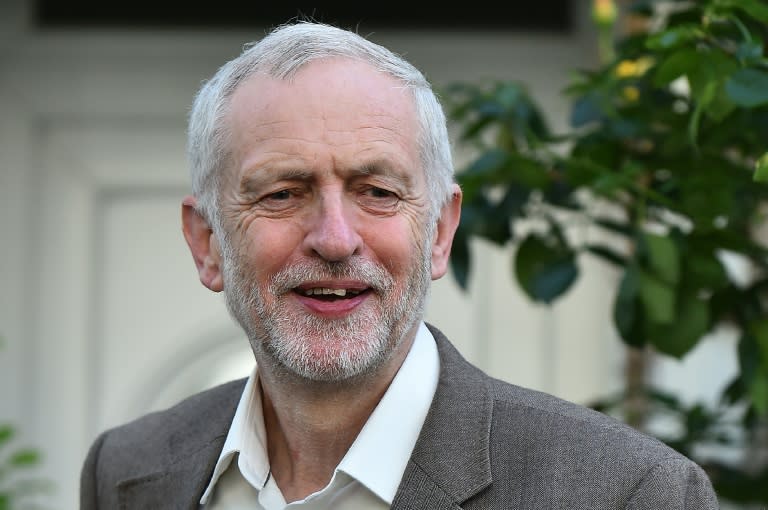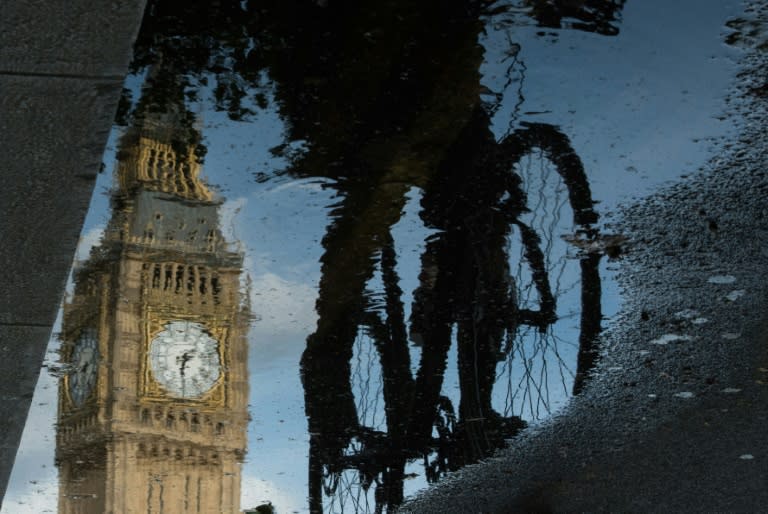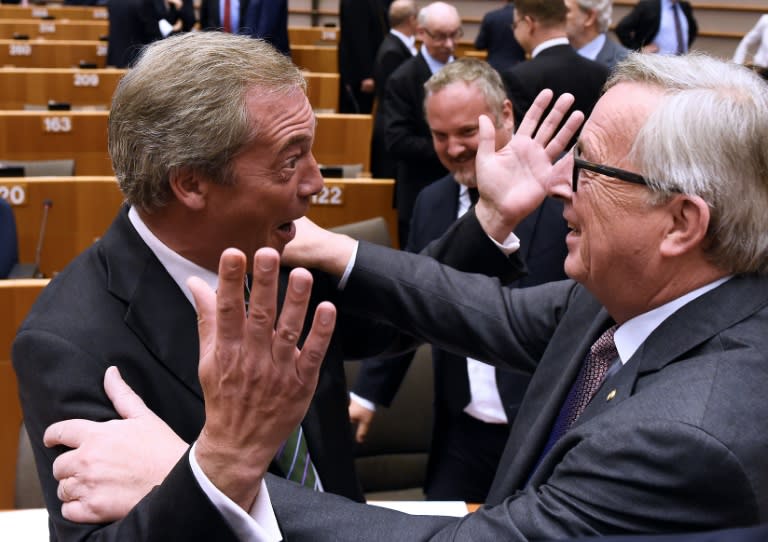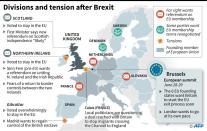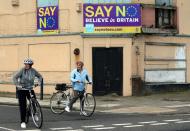Cameron runs EU gauntlet after Brexit vote
Impatient European leaders pressed a humiliated Prime Minister David Cameron on Tuesday to speed up Britain's divorce from the EU, warning that the UK cannot expect special treatment outside the bloc. Five days after Britons shocked the world by voting to leave the 28-nation EU, British domestic political chaos spiralled with the leader of the opposition Labour party losing a no-confidence vote but refusing to resign. US President Barack Obama warned however against "hysteria" as stock markets and the pound staged a tentative recovery after days of losses that saw sterling slump to a 31-year low. Cameron, at probably his last EU summit in Brussels before stepping down over the referendum result, is refusing to bow to pressure quickly to initiate proceedings to exit the EU. Instead he is leaving it to up to his successor -- to be named on September 9 -- to trigger Article 50, the EU treaty clause that starts a two-year countdown until Britain's departure. As he arrived for what is likely to be an awkward dinner with his counterparts, Cameron said the split should be "as constructive as possible" and that he wanted the "closest possible relationship" with Europe afterwards. - Merkel warning - But European powers are loath to give Britain an easy ride, insisting that negotiations on the future relationship cannot begin until it starts the divorce proceedings. German Chancellor Angela Merkel warned Cameron could not "cherry-pick" in the exit negotiations -- and there would be a price for Britain to pay. "It is important that we will negotiate only if the UK declares Article 50. There will be no informal or formal negotiations before," she said as she arrived in Brussels. French President Francois Hollande warned that "the whole world has its eyes on Europe" as he pushed Britain to react so the union could move forward. In a stern warning, European Commission chief Jean-Claude Juncker said that he had banned Commission officials from having any "secret" talks with Britain before Article 50 was triggered. And European Parliament President Martin Schulz said Cameron was "taking the destiny of our entire continent hostage purely for internal political reasons". Dutch Prime Minister Mark Rutte however showed some sympathy for Britain's predicament "England right now is in the midst of a political, monetary, constitutional and economic crisis so it's not reasonable at the present time for them to trigger Article 50," Rutte said. - EU after Brexit - Britain's decision has also put the remaining 27 members of the EU under pressure to come up with an adequate response to prevent other countries following suit. Germany, France and Italy have urged steps among the rest of the EU jointly to boost cooperation on security as well as programmes to boost economic growth and youth employment. The 27 will meet without Cameron on Wednesday and EU President Donald Tusk proposed holding another summit in September. The referendum result has caused an earthquake in British politics, claiming not only Cameron's scalp but also leaving opposition Labour leader Jeremy Corbyn fighting for his political life. On Tuesday, Corbyn lost a no-confidence vote among Labour MPs by 172 to 40, but remained defiant despite around 20 members of his shadow cabinet resigning. "I was democratically elected leader of our party for a new kind of politics by 60 percent of Labour members and supporters, and I will not betray them by resigning," Corbyn said in a statement. Jockeying has also begun within the Conservatives to replace Cameron, with key Brexit proponent Boris Johnson and interior minister Theresa May considered front-runners. The winner may call a general election later this year. Stock markets and the pound recovered on Tuesday from heavy losses, but investors remain spooked by the prospect of one of the EU's biggest economies leaving the bloc. "None of the chaos induced by last Friday is anywhere near going away," Spreadex analyst Connor Campbell told AFP. British entrepreneur Richard Branson on Tuesday said his Virgin Group had pulled out of a deal involving 3,000 jobs after Britain voted to leave the EU. "When Brexiteers told the public that people were exaggerating that there would be a financial meltdown I think that it's been proven that they were not exaggerating," Branson said. But European Central Bank chief Mario Draghi told the EU summit that the growth in the eurozone economy would only take a mild hit of around 0.3 to 0.5 percent over three years. - Scotland goes to Brussels - Late Monday, Standard & Poor's and Fitch both cut their credit ratings for Britain as a result of the referendum. Both cited a possible second referendum on Scottish independence as a significant risk. Britain as a whole voted by 52 percent to leave the EU but 62 percent of Scots voted to stay. Scottish First Minister Nicola Sturgeon said she would travel to Brussels for talks on Wednesday, saying she was "utterly determined to preserve Scotland's relationship and place within the EU". One happy man though was Nigel Farage, head of the UK Independence Party, telling a jeering European Parliament -- after a hug with old sparring partner Juncker -- that he has had the last laugh. "When I came here 17 years ago and I said I wanted to lead a campaign to get Britain to leave the EU, you all laughed at me," he said. "But you are not laughing now." "The United Kingdom will not be the last member state to leave the European Union!"

